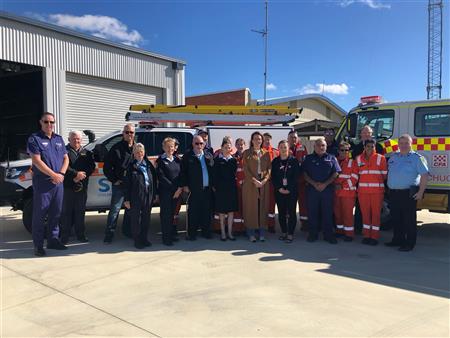As we mark the 20th anniversary of Australia’s involvement in the Afghanistan war this month, we ask: what was it all about? What was the actual point?
By Chris Johansen
At the beginning of this July, the US military personnel vacated their huge base at Bagram Airfield, Afghanistan, overnight. All American personnel suddenly disappearing like thieves in the night without informing their Afghan counterparts, who they were purportedly there to support and protect.
It reminded me of that iconic photo of a helicopter on top of the US Embassy in Saigon, lifting the last of the American personnel from there at the end of the Vietnam War in 1975.
The US military had entered Afghanistan some 20 years earlier, as a result of the 9/11 terrorist attacks in New York in 2001. They assumed that the Taliban, who then ruled most of Afghanistan, were harbouring all those who supported, planned and executed such attacks. And they convinced their allies, including NATO countries and their faithful sycophant Australia, to join them.
And who were the Taliban? They were a fundamentalist Islamist group formed, with the assistance of Pakistan, to fight the Soviet-backed government in Afghanistan during the 80s and 90s. Indeed, they were then supported by the US against a common Soviet enemy. Not only were the Taliban motivated by opposition to the godless communists but also by opposition to the ‘West’ for such reasons as the West’s support of Israel in subjugating the Palestinians and occupying Islam’s holy sites.
But was this assumption of direct complicity of the Taliban in 9/11 correct? Actually, the claimed main perpetrator of 9/11, Osama bin Laden, was a Saudi citizen captured by US agents in Pakistan, and executed without trial. And most other captured alleged perpetrators, now languishing in Guantanamo Bay into perpetuity, are Saudi nationals. The US are yet to transparently explain who actually was involved in 9/11, backed up by evidence.
It turns out that all of the major wars involving the US, and its unthinking allies, over the last 60 years began on false premises. The Vietnam War was precipitated by US’s false claim that its warships were attacked by the North Vietnamese Navy in international waters in the Gulf of Tonkin in 1964. The 2003 Iraq War was justified by the US claim of Iraq having ‘weapons of mass destruction’, which were never found. And the 2001-21 Afghan War on the as yet unproven assertion that the then Taliban Government was directly involved in 9/11.
Although the Taliban essentially ruled Afghanistan in 2001, by occupying the capital city Kabul, they were opposed by the Northern Alliance, an alliance of various tribal groups. When they learned that the US was about to seek revenge on the Taliban for 9/11, and thinking that they would be duly militarily supported, they marched on Kabul in late 2001, ousting the Taliban. While living in Bangladesh then, I well remember the daily reports of BBC reporter John Simpson, embedded with the frontline troops of the Northern Alliance.
However, the Taliban continued to remain in control in various rural areas of Afghanistan. From early 2002, the US and allies began deploying their troops and weaponry, initially claiming for the main purpose of training, and providing secondary support to, the Afghan Government troops to fight the Taliban. Not so easy, as the Afghan Government comprised various tribal factions, historically often at war with each other. So, inevitably the foreign US-led troops began to take on frontline roles.
The then-escalating Afghan war was regularly reported by international broadcasters, like BBC, CNN and Al Jazeera, readily accessible to me in Bangladesh. Probably such coverage was not available in Australia. I remember one such report of Australian troops, armed to the teeth with the latest weaponry (contrasting with the WW1 vintage Lee Enfield rifles still used by some of the Taliban), entering an Afghan village they were supposed to be ‘protecting’. They didn’t march straight in in platoon formation, but soldiers darted from one protective cover to another with weapons cocked and pointed at the village dwellings. The photojournalist captured the terrified faces of the women, children and old men scurrying into their houses or running out of the village.
This reminded me of the ‘pacification’ and ‘hearts and minds’ campaigns of the Vietnam War some 55 years earlier, where the US military and allies tried to win support of the local population by intimidation. In the late 60s and early 70s there was regular TV footage documenting the terrorisation of villages thought to be harbouring Viet Cong. Of course, history records that that didn’t work.
It is indeed difficult to fight guerrillas, which is what the Taliban essentially were, when they are part of the local population and can seamlessly melt in and out of it. Militarily extricating them from that population while gaining the support of that population is a nigh on impossible task. It is rather difficult for foreigners to differentiate between Taliban, Taliban sympathisers and Taliban opponents in a typical village. Hence it’s not at all astonishing that war crimes would be committed against innocent civilians, as well as captured Taliban, in such circumstances.
The major outcome for Australia in its participation in the Afghan war is a list of pending war crimes trials. Although the actual soldiers who pulled the triggers, bashed with a rifle butt, or otherwise committed murder need to be put on trial, equally so should the military commanders (to the highest level) and the politicians (to the highest level) who put them in this inevitable situation. In the case of the Vietnam War the perpetrators of war crimes, from the individual soldiers concerned to their military and political masters, managed to avoid due legal process. Unfortunately, a similar outcome is likely in the case of the Afghan War.
The justification given by government to the Australian population for the Vietnam War was the ‘domino effect’, the assertion that defeat in Vietnam would result in all of South-East Asia and eventually Australia would be overrun by communist forces. This didn’t happen, for the obvious reason that it was actually a war of long aspired national liberation, which stopped at the borders of Vietnam.
The justification given by government to the Australian population for the Afghan War was that it was necessary to stop the spread of Islamic terrorism. In reality, along with the invasion of Iraq in 2003, the Afghan War created more Islamic terrorists than it diminished. The brutality shown by invading forces in Iraq (e.g. Abu Ghraib) resulted in the formation of the equally if not more brutal Islamic State. The above-described behaviour of foreign forces in Afghanistan created more Taliban and sympathisers in the countryside than it discouraged. Little wonder that the Taliban have now relatively easily taken over the country. I am surprised that anyone remotely familiar with the recent history of Afghanistan would themselves be surprised by this.
After a decade of fighting in Afghanistan there was little evidence to be found of the Taliban providing sanctuary to Islamic terrorists. In any case, with the sophistication of communication capabilities there was no longer any need for physical sanctuaries. It was then claimed by the western allies that their purpose for staying on was to adequately train the Afghan army, to be able to keep the Taliban in their place (remote rural areas). Well, that worked out well – as soon as the foreign troops left en masse the Afghan troops deserted en masse and the Taliban drove their pickups into Kabul within weeks.
The other justification given by western forces for staying on in Afghanistan was ‘nation building’. If you look up any handbook on Nation Building 101, in Chapter 1 (or perhaps in the Preface) you would find words to the effect: not done by foreigners coming in brandishing guns. If foreigners are to be involved they should be completely unarmed, empathetic and there for the purpose of imparting knowledge and skills. Just like in Vietnam, attempts at ‘nation building’ while hiding behind a gun just don’t work.
For those who lived through the Vietnam War period, the outcome in Afghanistan was highly predictable. So what should have been the response to 9/11? Target the individuals who actually committed that crime, no matter what country they are in or their nationality, rather than create war in just one country that is suspected of harbouring some of the perpetrators. Pakistan and Saudi Arabia were not implicated, despite the evidence of their involvement, as they are military allies of the US. US intelligence services seem well experienced and equipped to identify the actual individuals involved in 9/11.
Further, it needs to be recognised as to what are the roots Islamic terrorism in the first place. The obvious one is the colonisation of Palestine and seemingly intransigent support of western countries for Israel. Extreme poverty and inequalities in some Muslim countries make fertile ground for more extreme anti-western views, to the point of supporting acts of violence. Discrimination against Muslim communities where they are a minority of the population, no doubt enhanced by acts of Islamic terrorism elsewhere, also provide a fertile breeding ground for incitement to violence. Islamophobia has long been a fixture of western culture – since the days of the Ottoman Empire at least, which has intensified over recent decades.
Having repeated the Vietnam mistake in Afghanistan, will we go on repeating it? It seems so with various quarters, mainly from the conservative camp, beating on the drums of war with respect to China. To my understanding, all of the issues with China remain well within the scope of negotiation, rather than necessitating a call to arms. For example, the Australian Government seems intent on calling out human rights violations in China, while overlooking their own violations with respect to First Nations people, refugees, war crimes, etc. Of course, human rights violations by the Chinese government against minorities (e.g. Uighurs, Tibetans), or by any other government, need to be called out. But Australian nationals can only credibly do this if they are similarly prepared to call out such violations perpetrated by their own country.
Chris Johansen is the co-editor of Green Issue., where a version of this article originally appeared.
The views and opinions expressed in this article are those of the author.
Hero image: Pixabay.








